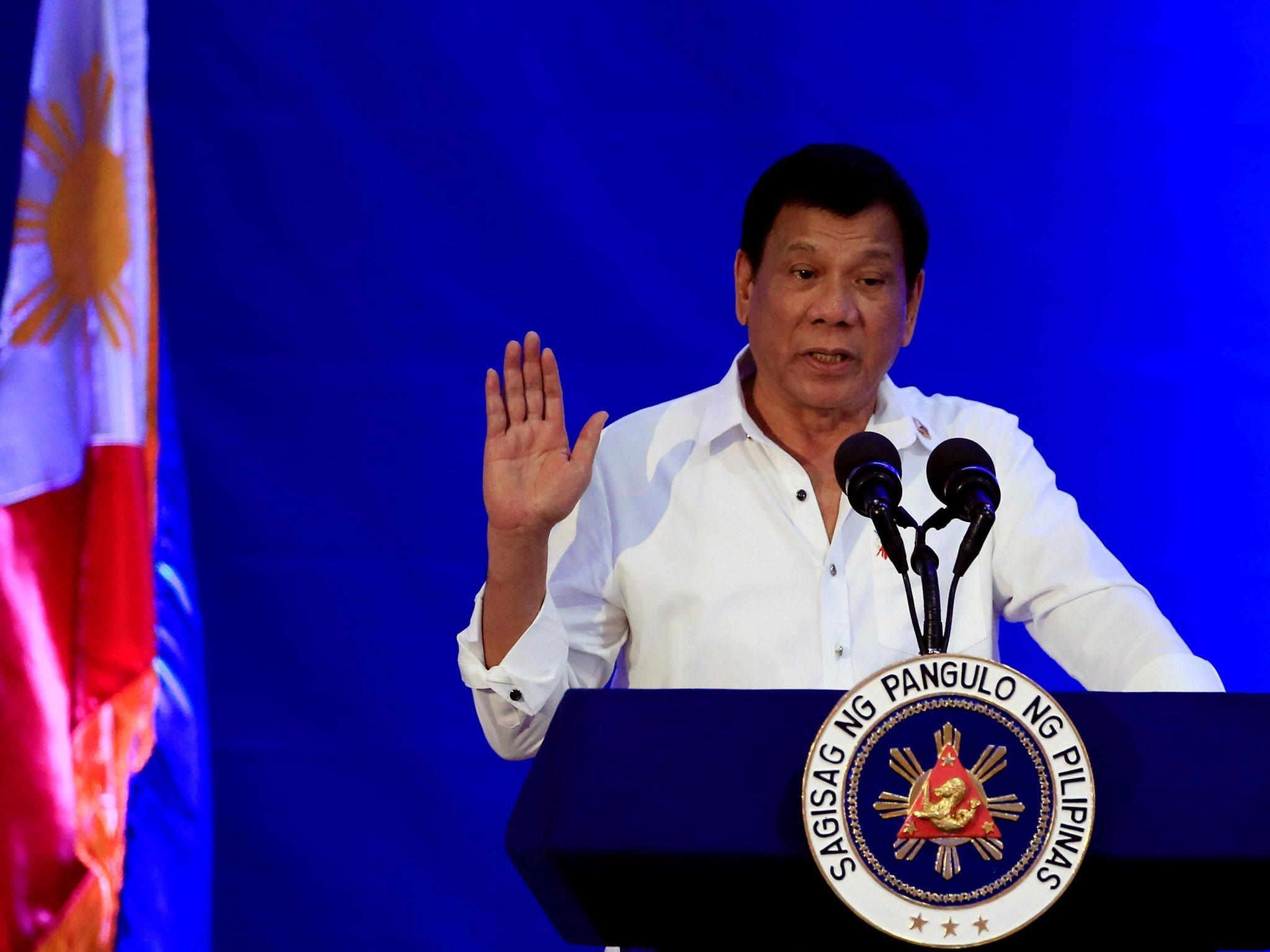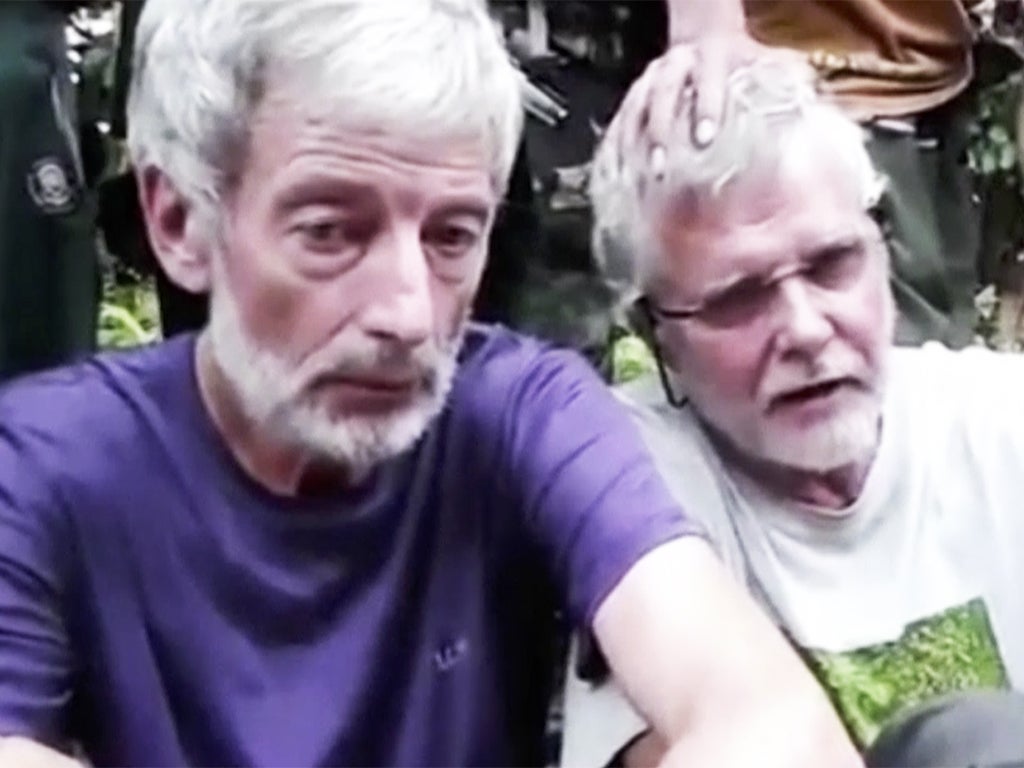Rodrigo Duterte: If Isis comes to the Philippines, forget about human rights
The country has suffered an Islamist insurgency for a number of years

Your support helps us to tell the story
From reproductive rights to climate change to Big Tech, The Independent is on the ground when the story is developing. Whether it's investigating the financials of Elon Musk's pro-Trump PAC or producing our latest documentary, 'The A Word', which shines a light on the American women fighting for reproductive rights, we know how important it is to parse out the facts from the messaging.
At such a critical moment in US history, we need reporters on the ground. Your donation allows us to keep sending journalists to speak to both sides of the story.
The Independent is trusted by Americans across the entire political spectrum. And unlike many other quality news outlets, we choose not to lock Americans out of our reporting and analysis with paywalls. We believe quality journalism should be available to everyone, paid for by those who can afford it.
Your support makes all the difference.The president of the Philippines has pledged to ignore human rights if the breakup of Isis in the Middle East worsens the Islamist insurgency in his country.
Rodrigo Duterte has frequently voiced his indifference to human rights, most frequently in the context of his ruthless war on drugs, but the Philippines also suffers from a militant Islamist insurgency.
Speaking to a law enforcement agency, he expressed concern over fighters returning from Iraq and Syria.
He said: "Once the terrorists of the Middle East are deprived of the land area, the real estate area where they can sleep ... they will wander to other places and they will come here and we have to prepare for that.
"Remember, these guys, they do not have an iota of what is human rights, believe me. I will not just simply allow my people to be slaughtered for the sake of human rights, that's bullshit."
Mr Duterte was alarmed about “looming terrorism” on his home island of Mindanao, which he said was already extremely lawless.
In September, a bomb in the Mindanao town of Davao, where Mr Duterte governed as mayor for 22 years, killed 15 people. The attack has been linked to Islamist group Dawlah Islamiyah, allied with the more notorious Abu Sayyaf group – who are linked to Isis.
“There are various rebel groups in the south [Philippines] who will claim allegiance to anybody who appears radical,” said Bill Payton, Associate Fellow on Chatham House’s Asia Programme, to The Independent. “It doesn’t necessarily mean they subscribe to the ideology.”
But some Abu Sayyaf tactics have provoked uncomfortable reminders of extreme jihadism. Earlier this year, two Canadian hostages held by the group, tourists Robert Hall and John Ridsdel, were beheaded on video by the group while wearing orange overalls.

Most south east Asian countries are worried about the possibility of jihadis returning home from the Middle East, according to Mr Payton, though it doesn’t mean the terrorists will be successful – Indonesia, in particular, has successfully monitored extremists.
Mr Payton said: “They are concerned but not overly concerned. These things are more home grown and long established. The Islamic insurgency in the southern Philippines has been problematic enough without this.
“Duterte also thinks he can cut a deal with some of the Islamic rebel groups and he doesn’t want a terrorism upsurge to derail that.”
The president was in a “tricky position” because he wanted to take care of the Islamist problem by himself, Mr Payton said, rather than give the US free reign.
US Special Forces have operated in the south of the country since 2002 on anti-terrorist operations, though their numbers have decreased in recent years.
But Mr Duterte has said he wants the remaining troops to leave - not just Mindanao, but the whole country. Military exercises with the US set for 2017 will be the last, the president pledged.
“By the time I end my term [2022], I do not want to see any—not only the U.S. but even African or Chinese or whatever—I do not want to see foreign military troops in my country,” Mr Duterte said shortly after the US election, the Wall Street Journal reported.
He added: “We are just facing rebellion; I do not expect any war against any country.”
The president’s recent rhetoric - insulting Barack Obama, in particular - has not been healthy for relations with the US and led observers to speculate he may be pivoting towards China.
Join our commenting forum
Join thought-provoking conversations, follow other Independent readers and see their replies
Comments